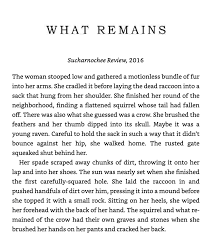Unveiling the Magic: Exploring the Transformative Power of Stories

Stories have been an integral part of human existence since the dawn of time. From ancient myths and legends to modern novels and films, stories have captivated our imagination, taught us important lessons, and provided a means of connecting with one another.
At their core, stories are vessels for communication. They allow us to share experiences, emotions, and ideas in a way that transcends time and space. Through stories, we can explore different perspectives, empathize with characters, and gain insights into the human condition.
One of the most powerful aspects of stories is their ability to transport us to different worlds. Whether it’s a fantastical realm filled with mythical creatures or a gritty urban landscape, stories have the power to take us on incredible journeys without ever leaving our seats. They offer an escape from reality while simultaneously shedding light on our own lives.
Moreover, stories have the power to inspire and motivate. They can ignite our passions, challenge our beliefs, and push us to think outside the box. By presenting characters who overcome obstacles or face moral dilemmas, stories encourage us to reflect on our own choices and actions.
In addition to entertainment value, stories also play a crucial role in education. Children learn about morals and values through fairy tales; historical events are brought to life through historical fiction; complex scientific concepts are simplified through storytelling techniques. Stories have a unique way of making information more accessible and engaging.
Furthermore, stories foster empathy by allowing us to step into someone else’s shoes. By experiencing the world through different characters’ perspectives, we develop a deeper understanding of diverse cultures, experiences, and emotions. This empathy-building aspect of storytelling has the potential to bridge divides and foster greater understanding among individuals and communities.
In today’s fast-paced world filled with technological distractions, it is important not to overlook the power of storytelling. Whether it’s reading a book before bed or watching a film that moves us deeply, taking time for stories allows us to reconnect with our humanity, explore new ideas, and find solace in shared experiences.
So, let us celebrate the timeless art of storytelling. Let us embrace the stories that have shaped us and continue to shape our world. Through stories, we can find common ground, expand our horizons, and discover the power of imagination.
Frequently Asked Questions About Stories: Understanding the Difference, Spelling, Plural, and Meaning
- What is the difference between storys and stories?
- Is it spelled storys or stories?
- What is plural for story?
- What do you mean a story?
What is the difference between storys and stories?
The difference between “storys” and “stories” lies in their grammatical usage. “Stories” is the correct plural form of the noun “story,” while “storys” is an incorrect pluralization.
The word “story” refers to a narrative or account of events, often involving characters and a plot. It can be used to describe both fictional narratives and real-life anecdotes. For example, you might say, “She told me a captivating story about her travels.”
When there is more than one story, the correct plural form is “stories.” For instance, you would say, “I’ve read many interesting stories this year.” This follows the standard rule of adding an “-s” to form plurals in English.
On the other hand, using “storys” as a plural form is grammatically incorrect. It deviates from the established rules of English grammar. Therefore, it’s best to use “stories” when referring to multiple narratives or accounts.
Is it spelled storys or stories?
The correct spelling is “stories.” The plural form of the word “story” is “stories.”
What is plural for story?
The plural form of “story” is “stories.”
What do you mean a story?
A story is a narrative that conveys a sequence of events or experiences, often involving characters and a plot. It is a way of organizing and sharing information, ideas, or emotions in a structured and engaging manner. Stories can take various forms, including written literature, oral traditions, films, plays, and even personal anecdotes.
A story typically consists of key elements such as characters (who the story revolves around), setting (where and when the story takes place), plot (the sequence of events that drive the story forward), conflict (the central struggle or problem faced by the characters), and resolution (how the conflict is resolved).
Stories can be fictional or based on real-life events. They can be imaginative and fantastical or grounded in reality. Regardless of their form or genre, stories serve multiple purposes: they entertain, educate, inspire, provoke thought, evoke emotions, and create connections between people.
Through stories, we can explore different themes and topics such as love, friendship, adventure, loss, justice, or personal growth. They allow us to experience situations beyond our own reality and provide insights into different cultures, perspectives, and time periods.
Stories have been an integral part of human communication for centuries. They have been used to pass down cultural traditions and values from one generation to another. They help us make sense of the world around us by providing context and meaning to our experiences.
In essence, a story is a powerful tool that allows us to share narratives that captivate our imagination while conveying deeper messages about life’s complexities. It is through stories that we connect with others on an emotional level and gain new perspectives on ourselves and the world we inhabit.
Tags: ancient myths, captivated imagination, connecting with one another, emotions, empathize with characters, escape from reality while shedding light on our own lives, explore different perspectives, fantastical realm filled with mythical creatures, films, gain insights into the human condition, gritty urban landscape, human existence, ideas, incredible journeys without leaving our seats, integral part, legends, modern novels, share experiences, story's, taught important lessons, transcends time and space, transport us to different worlds, vessels for communication